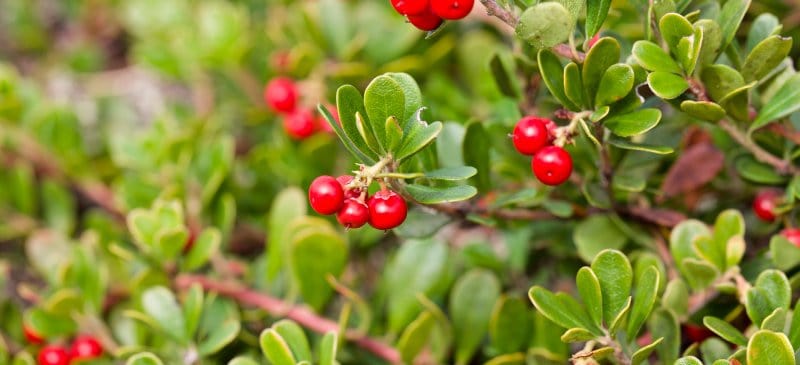This Dr. Axe content is medically reviewed or fact checked to ensure factually accurate information.
With strict editorial sourcing guidelines, we only link to academic research institutions, reputable media sites and, when research is available, medically peer-reviewed studies. Note that the numbers in parentheses (1, 2, etc.) are clickable links to these studies.
The information in our articles is NOT intended to replace a one-on-one relationship with a qualified health care professional and is not intended as medical advice.
This article is based on scientific evidence, written by experts and fact checked by our trained editorial staff. Note that the numbers in parentheses (1, 2, etc.) are clickable links to medically peer-reviewed studies.
Our team includes licensed nutritionists and dietitians, certified health education specialists, as well as certified strength and conditioning specialists, personal trainers and corrective exercise specialists. Our team aims to be not only thorough with its research, but also objective and unbiased.
The information in our articles is NOT intended to replace a one-on-one relationship with a qualified health care professional and is not intended as medical advice.
Uva Ursi: How Bearberry Can Support the Skin & Urinary Tract
May 22, 2021

Prior to the invention of antibiotics, indigenous people used various plants and herbal remedies to deal with issues including infections. One example is the plant called uva ursi, or bearberry, which has been used as a natural remedy for UTIs (urinary tract infections) for hundreds of years.
Leaf extracts made from uva ursi (Arctostaphylos uva-ursi) have been approved for use for urinary tract inflammation by the German Federal Institute for Drugs and Medical Devices and are even available as prescriptions in Germany for this application. Whether taken as a capsule, tincture or tea, this herb seems capable of fighting inflammation, infections, swelling and more.
What Is Uva Ursi?
Uva ursi (UU) is an herbal supplement that is made from an evergreen plant that produces red berries. It’s also called bearberry, although technically uva ursi is only two species of bearberry, which is a term used to describe a number of different but related plants in the genus Arctostaphylos.
The three species of uva ursi/bearberry plants that are most often used as herbal medicine are Arctostaphylos uva-ursi, Arctostaphylos adentricha and Arctostaphylos coactylis.
In addition to being called bearberry, UU is also sometimes referred to by other names, including:
- beargrape
- rockberry
- red berry
- kinnikinnick
- sandberry
Can you eat bearberry? Dried and crushed UU leaves are used to make supplements but not the berries.
In supplement form, UU is taken as a powder, capsules, tea or tincture. Topical ointments for the skin are also available.
Where does bearberry grow? It’s found in many different types of climates and locations that have a good amount of sun exposure, including open woodlands, sandy beaches and rocky soils.
You’ll find it growing in places such as California and New Mexico in the U.S. and throughout parts of Europe, Siberia and and the Himalayas. When the weather is warm and sunny the plant produces pink and white flowers and red berries.
Benefits
What is uva ursi good for? According to studies, it has a number of beneficial effects, including acting as a diuretic, urinary antiseptic, astringent and anti-inflammatory.
Extracts made from UU leaves contain many protective constituents, such as:
- flavonoids
- iridoids
- hydroquinone glycosides (mainly arbutin)
- tannins
- terpenoids
Most of UU’s antimicrobial actions are attributed to the hydroquinone derivatives, especially arbutin.
Below is more about some of the main uva ursi benefits:
1. Can Help Treat Urinary Tract Infections
UU is most often used to help to treat UTIs and bladder infections (also called cystitis). There haven’t been many large-scale studies investigating its effectiveness or mechanisms of actions, but several small studies have shown promise that it can reduce recurring UTIs thanks to its natural antibacterial and astringent properties.
This might also decrease the need for antibiotics used to treat UTIs.
UU is thought to be capable of helping prevent UTIs, cystitis and swelling of the bladder and urethra due to the presence of glycosides and other anti-inflammatory compounds, including arbutin, tannins and hydroquinone. These help reduce bacteria that can accumulate in the urethra and bladder that lead to infections.
It’s also been shown to help manage urinary incontinence (uncontrolled leakage of urine) and shrink and tighten mucous membranes in the body, which help reduce susceptibility to infections.
In one 2017 review, a preparation of UU combined with green tea was able to reduce proliferation of bacteria called Staphylococcus saprophyticus, which commonly contributes UTIs. This specific preparation did a better job than 13 other types that were tested in the study.
UU combined with green tea was able to lower Staphylococcus saprophyticus levels by about 75% in part by killing bacteria and also restoring a normal pH balance.
Other studies show that bearberry can help kill Escherichia coli (E. coli), a pathogen that causes urinary, bladder and digestive issues.
2. Acts as a Natural Diuretic
Uva ursi is known for its diuretic properties, meaning it can help flush out fluids from the body, reducing swelling and lowering the presence of pathogens in the process.
Does uva ursi help kidney stones? It’s not typically used for this purpose, but it’s thought to have natural detoxifying effects that may assist in overall kidney function.
However, taking too much may potentially damage the kidneys and liver, so the dosage is important.
3. May Reduce Hyperpigmentation of the Skin
UU can be used as a topical preparation that’s applied to the skin to help reduce skin lightening and hyperpigmentation. Its skin-enhancing effects are mostly attributed to its antioxidant content, including the compound arbutin.
It also has astringent and cleansing effects that help reduce breakouts and oiliness.
Other Uses
In addition to treating urinary, bladder and skin conditions, UU is also sometimes used to treat other conditions and symptoms, although there is less research available to demonstrate how well it works for these purposes. Some other uses for UU include potentially managing:
- Indigestion and constipation
- Painful and frequent urination
- Excess uric acid in the urine
- Skin wounds that are slow to heal
- Symptoms related to inflammation, such as aches and pains
- Kidney infections
- Bronchitis
- Bedwetting
Risks and Side Effects
Is uva ursi safe? Overall it’s considered safe for short-term use when used in recommended doses.
It’s intended to be taken for about one to two weeks but not long term unless being monitored by a doctor.
Is bearberry poisonous? Too much UU can potentially be toxic due to the presence of hydroquinone, so it’s important to follow dosage recommendations.
Bearberry/UU is capable of causing side effects in some people, especially when used for many months or taken in high amounts. Potential side effects associated with UU use may include:
- Nausea and vomiting
- Indigestion/upset stomach
- Discoloration of the urine
- Mood changes, fatigue and irritability
- Insomnia
- Possibly liver or kidney damage, shortness of breath, confusion and seizures in very rare but serious cases
In order to prevent drug interactions and side effects, UU should not be taken by people who take certain other medications. Contraindications for uva ursi include combining it with:
- Lithium
- Blood pressure medications
- Anti-inflammatory drugs (NSAIDs) and corticosteroids
- Iron supplements
It should generally be avoided by children, pregnant and nursing women, and anyone with kidney disorders, high blood pressure, Crohn’s disease, ulcers ands liver disease unless working closely with a doctor.
Dosage
Can I take uva ursi every day? Rather than taking it on an ongoing basis, UU is intended for short-term use, such as when overcoming a UTI.
Do not use for periods longer than seven to 14 days and more often than five times per year without consulting a physician.
Dosage recommendations vary depending on the form it’s taken in and the specific symptoms being treated. Usually a dose between two to four grams per day is taken, sometimes in divided doses.
Look for the active ingredient arbutin in UU products. The goal should be to consume between 400 and 800 milligrams of arbutin per day.
UU naturally has a rich, earthy flavor.
If you prefer to consume uva ursi tea, look for pre-made tea bags in health food stores (ideally those that are organic), or make your own tea using about two to three grams of dried leaves in eight ounces of hot water. Steep the mixture for about to 10 12 minutes before removing the leaves.
Consume between two and four cups daily for the best results.
If using it to treat a UTI, consider combining it with green tea and dandelion tea. It’s also sometimes used with peppermint to reduce inflammation and relieve symptoms.
Conclusion
- Uva ursi is an herbal remedy that’s also called bearberry. It contains a number of protective compounds, including flavonoids, iridoids, hydroquinone glycosides (mainly arbutin), tannins and terpenoids
- What is bearberry used for? It has natural antibacterial and astringent effects and is most often used to treat UTIs. It may also help with bladder infections and skin issues, such as hyperpigmentation.
- You can consume bearberry in powder, capsule, extract and tea form. Dosage recommendations vary depending on how you use it. The most active ingredient, arbutin, should be taken in doses of between 400 and 800 mg/daily.




